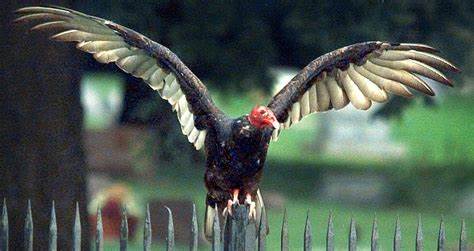Vultures, often regarded with a mix of fascination and fear, play a crucial role in ecosystems around the world. These remarkable scavengers serve as nature’s cleanup crew, disposing of carcasses and helping to maintain ecological balance. In this article, we’ll delve into the world of vultures, exploring their unique characteristics, ecological importance, and the challenges they face.
Vulture Species Diversity
- Global Presence: Vultures can be found on every continent except Antarctica, showcasing remarkable adaptability.
- Species Variety: There are over 20 species of vultures worldwide, ranging from the iconic Andean condor to the Egyptian vulture.
Distinctive Appearance
- Bald Heads: Many vulture species have featherless heads, which prevent bacteria and grime from accumulating when they feed on carrion.

Efficient Scavengers
- Role in Ecosystems: Vultures are essential for ecosystem health, as they prevent the spread of diseases by consuming carrion before it can rot and infect other animals.
- Fast Clean-Up: These birds can strip a carcass down to the bones quickly, preventing the buildup of decaying matter.
Superb Flyers
- Gliding Masters: Vultures are renowned for their soaring flight, utilizing thermal updrafts to cover vast distances with minimal effort.
- Long-Distance Travelers: Some vulture species undertake incredible migrations, traveling thousands of miles between breeding and feeding grounds.
Social Creatures
- Colonial Nesting: Vultures often nest in colonies, where they form tight-knit communities.
- Social Hierarchy: Dominance hierarchies exist within vulture colonies, with alpha birds typically getting first access to food.
Challenges Faced by Vultures
- Habitat Loss: Human activities like deforestation and urbanization threaten vulture habitats.
- Poisoning: Accidental or deliberate poisoning, often intended for other predators, is a significant threat to vultures.
Conservation Efforts
- Breeding Programs: Conservationists are running breeding programs to increase vulture populations and release them into the wild.
- Education: Raising awareness about vultures’ ecological importance and the threats they face is crucial for their conservation.
Role in Mythology and Culture
- Sacred Symbols: Vultures have held symbolic significance in various cultures throughout history, often representing both death and rebirth.
Human-Vulture Conflicts
- Cultural Misunderstandings: In some regions, vultures are misunderstood and persecuted due to superstitions and cultural beliefs.
- Mitigation Measures: Promoting coexistence and implementing mitigation strategies can help reduce conflicts between vultures and humans.
Vultures in Popular Media
- Cinematic Appearances: Vultures have made memorable appearances in movies and literature, often as symbols of death and foreboding.
Conclusion
Vultures, with their distinctive appearance and invaluable role in ecosystems, are creatures of both fascination and ecological importance. They are nature’s unsung heroes, diligently performing the critical task of cleaning up carrion and preventing the spread of diseases. Despite the challenges they face from habitat loss and human conflicts, efforts are underway to conserve these remarkable birds and ensure their continued role as nature’s cleanup crew.

